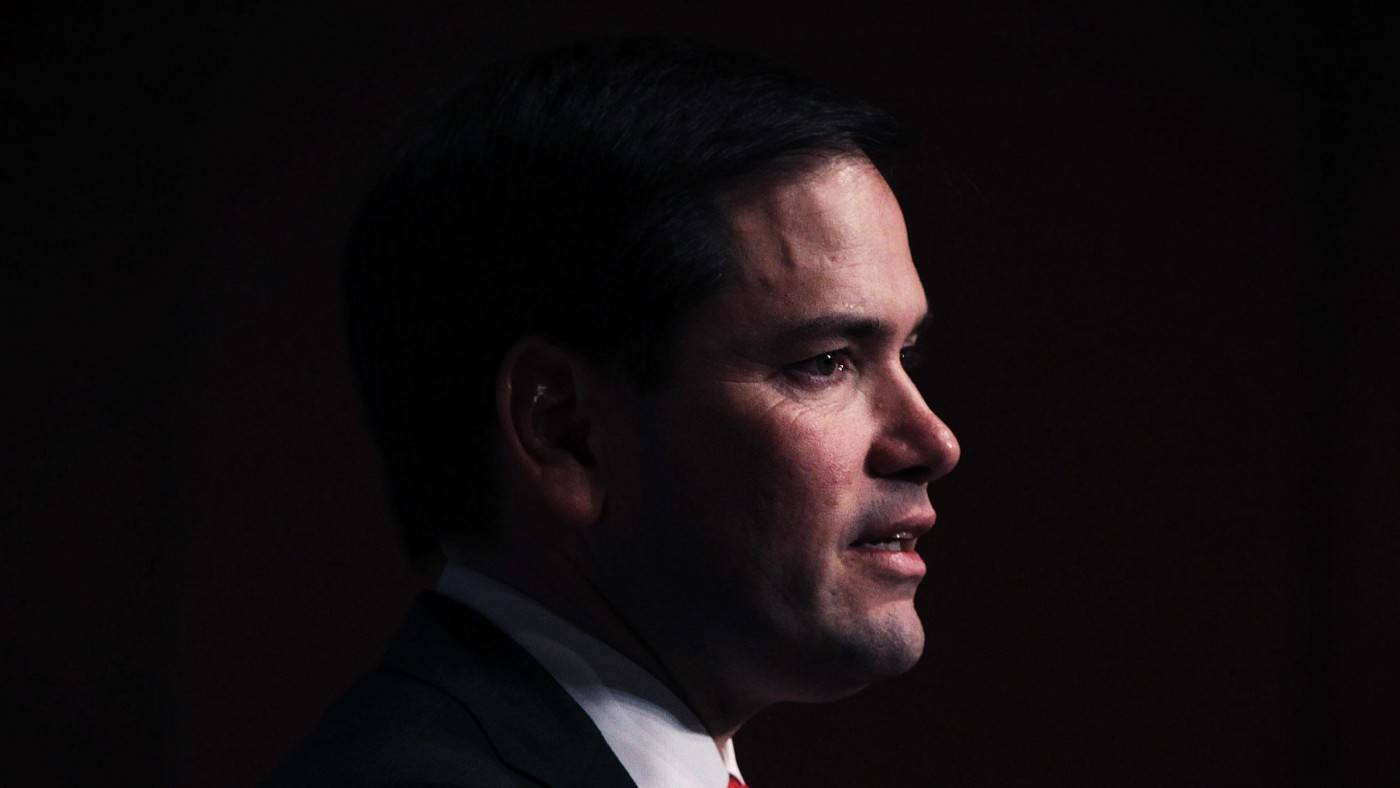Real estate magnate Donald Trump is leading the RealClearPolitics average of Republican presidential polls nationally, followed by Texas Senator Ted Cruz. Florida Senator Marco Rubio is in third place, with about 12 percent of the Republican vote. Yet Rubio has many advantages. Here are three reasons why it’s better to be Rubio this Christmas season.
The Establishment Supports Rubio. Rubio has consolidated establishment support because former Florida Governor Jeb Bush has run a poor campaign. Bush has committed serious gaffes. He is not a good retail politician, and has not been able to adapt his message to the new political climate. Despite pouring money into New Hampshire, Bush is still low in the polls. That’s why he’s likely to lose what little establishment support remains.
What about other establishment candidates? New Jersey Governor Chris Christie has not recovered from Bridgegate, when some of his political appointees closed the entrance to the George Washington Bridge from Fort Lee after Labor Day weekend in September 2013, causing massive traffic problems. The motive? The mayor of Fort Lee refused to support Christie for reelection. Even though the New Hampshire Union Leader has endorsed Christie for president, he has not been able to consolidate establishment support on a national level.
Ohio Governor John Kasich’s campaign has not taken off. Despite early promise, he has been unable to consolidate a national support base.
This is important because establishment candidates tend to win. In every post-war election with the exception of 1964 and 1980, the establishment favorite has won the Republican primary. While conservatives notably do well in down-ballot races such as congressional or gubernatorial primaries, presidential primaries get far more press attention and therefore attract a much bigger electorate, one in which the Republican base of conservative activists carries much less weight.
Henry Olson attributes establishment dominance of presidential primaries to his four-part breakdown of the Republican Party: very conservative evangelical voters; very conservative secular voters; somewhat conservative voters; and moderate or liberal voters. Even though the latter two categories get little media attention and are less vocal, they make up the majority of the electorate.
A candidate who does well with Republican voters who are not that conservative—think Romney, McCain, Bush, or Dole—is well-positioned to win the primary. This looks like Rubio right now.
Rubio will have the funding to run a national campaign. Some contributors such as Paul Singer, chairman of the board of the Manhattan Institute, where I work, have endorsed Rubio. Primary campaigns are very expensive, and not all candidates will be able to make it.
Larry Nichols, an energy executive and chairman of Devon Energy, endorsed Rubio this week. Rubio is moving beyond traditional Republican sources, and getting support from people such as Larry Ellison, founder of Oracle. More funding will result in more support.
As Holman Jenkins wrote last week in the Wall Street Journal, running a presidential race is expensive, and Trump will not want to assume these costs. Jenkins said, “He won’t want to liquidate major holdings. He won’t want to sign his name to nine-figure mortgages. There’s a reason other candidates have been fundraising for years.” It’s one thing to survive now, yet another to run operations in a dozen states at once.
Trump has high negatives. Many people love Trump, but others do not share this opinion. A Quinnipiac poll taken this week shows that 30 percent of Republicans have unfavorable views of the real estate developer. If he were to win an early primary, a giant anti-Trump backlash would force other candidates, such as Bush and Kasich, out of the race. Pressure to drop out would come from their funders and supporters, who could not stomach a Trump or Cruz nomination. Rubio is positioned as the most viable alternative candidate, and everyone’s fallback option.
Trump’s candidacy could be a blessing in disguise for Rubio because Rubio can be a foil to Trump. The debates have shown a sharp contrast between Rubio and Trump, and Rubio and Cruz. They have illustrated a rift within the Republican Party and made it much more difficult for Democrats to tar all Republicans with the same brush. Rubio will likely gain the support of many moderates and independents by arguing against Trump’s stances.
This means that Rubio will not have to pull the Romney trick of taking conservative positions in the primary and moderate ones in the national campaign in order to win the general election. In March 2012, Mitt Romney advisor Eric Fehrnstrom predicted that Romney would pivot from conservative to moderate positions “like an Etch A Sketch. You can kind of shake it up and restart all over again.” Rubio won’t need to do that. Trump allows Rubio to win over independents because Rubio will have defeated Trump, who is seen as a far right extremist.
Rubio seems cheerful, even when under attack. He smiles a lot. His message of hope and opportunity, with his grandfather telling him about the American dream in Spanish, resonates. If the likely Democratic nominee Hillary Clinton is matched against Trump, Cruz, or Rubio in the RealClearPolitics average of polls, only Rubio beats her.
The election’s outcome is far from certain. If there’s one thing we’ve learned from the 2016 cycle so far, it’s how quickly results can change. Just ask Wisconsin governor Scott Walker, once presumptive front runner. Senator Rubio is in as good a position as any to win, and better than most. Happy New Year, Marco.


